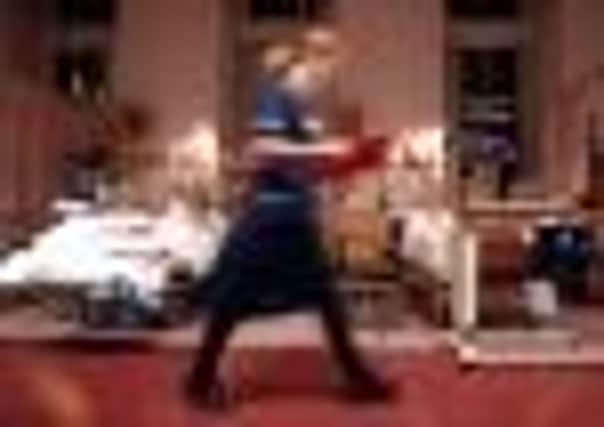Norovirus rise prompts £1m extra NHS funding


• £1m of extra funding for hospitals after rise in winter illnesses
• Cash boost will be directed towards Scotland’s A&E wards
Advertisement
Hide AdAdvertisement
Hide AdHealth secretray Alex Neil said the additional NHS funding will be used to pay for an extra ten consultants in Scotland’s Accident and Emergency wards over the coming months.
The investment is part of an emergency care action plan being agreed by the Government and doctors to ensure patients are seen as speedily as possible after they arrive for emergency care in hospital.
Patients should not have to wait longer than four hours in Scotland’s emergency units - however a recent survey found more than 7,000 patients had waited longer than this between December 23 last year and January 6 - the peak festive time.
NHS boards have reported a rise in admissions in the last few weeks as a result in the increased number of people suffering from winter illnesses.
Health chiefs say emergency admission rates are usually related to patient age and are expected to increase long-term given the ageing population.
Mr Neil said: “We are developing an unscheduled care action plan which will give renewed focus to the NHS in preparing for the future demands on our health service due to an ageing population.
“NHS boards plan well in advance for winter and we work closely with them to do that - including providing an extra £3 million to help manage winter pressures - to make sure that people do not have to wait longer than necessary to be treated.
“But we are seeing more people than ever before coming to hospital as emergency admissions due to the increase in the ageing population.
Advertisement
Hide AdAdvertisement
Hide Ad“So, it’s only right that we look at how we can do things better and improve how quickly people are seen in our hospitals.”
The numbers of consultants in Scotland have already increased from 76 (working-time equivalent) in September 2006, to 144 (working time equivalent) in September 2012, the Scottish Government said. The additional funding would pay for about 10 consultants, Mr Neil said.
The Health Secretary said research showed that the faster a patient is seen by a consultant, the fewer delays they experience during their hospital stay.
He said: “That is why the first task of our action plan is to increase the number of A&E consultants working in our hospitals,” he said.
“We have already seen an increase in these specialists but our extra £1 million investment will see this process speeded up.”
Mr Neil has also confirmed that a quarter of patients are not discharged from Scottih hospitals on time, leading to bed blocking actross the country.
Bed blocking has been blamed for some of the delays being seen in A and E wards during the rise in winter-related illnesses.